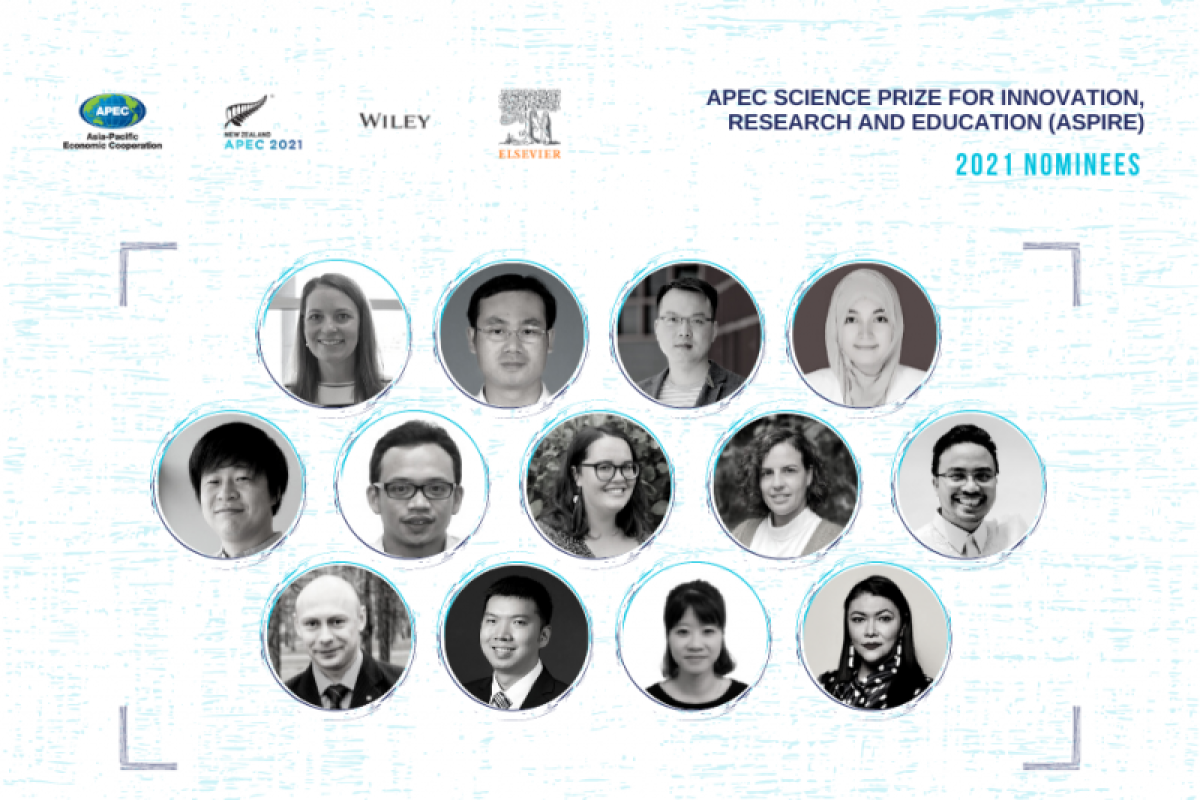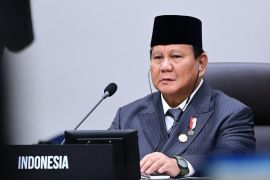We need to deepen our relations with these researchers to develop sound policies for an inclusive futureJakarta (ANTARA) - Some 13 young scientists across 21 APEC member economies have been nominated for this year’s APEC Science Prize for Innovation, Research and Education, or ASPIRE.
This year’s ASPIRE lays emphasis on the theme of "Diverse Knowledge for a Sustainable Future" selected by New Zealand, as the APEC host for 2021, according to a written statement issued by the APEC Secretariat and received here on Thursday.
The 2021 ASPIRE focuses on researcher insights from indigenous and ethnic minority cultures and communities to help inform about new frontiers in science, technology, and innovation.
Scientists nominated for this year’s prize advance outstanding scientific discoveries in diverse areas of knowledge aimed at creating a sustainable future, according to the APEC Policy Partnership for Science, Technology, and Innovation, which administers the annual ASPIRE.
They are also actively engaged in international collaboration with peer scientists in the region to promote and improve their work, it stated.
Related news: Jacinda Ardern to chair APEC Informal Leaders' Retreat on COVID-19
"Research by these scientists highlights the importance of international collaboration and learning from indigenous communities to advance our understanding of complex global challenges, such as health crises and climate change," according to Daniel Dufour, chair of the APEC Policy Partnership for Science, Technology, and Innovation.
"We are pleased to showcase the talent of these important researchers, who are working towards a sustainable future for all APEC economies," Dufour stated.
The winner, to be announced at a virtual ceremony during a series of meetings hosted by New Zealand in August 2021, will be awarded US$25 thousand from renowned publishers of scholarly scientific knowledge, Wiley and Elsevier.
"The contributions from indigenous knowledge systems and ethnic minority researchers is greatly beneficial for both policymakers and societies in the region," Professor Juliet Gerrard, the chief science advisor for New Zealand, emphasized.
"We need to deepen our relations with these researchers to develop sound policies for an inclusive future," Gerrard noted.
Related news: APEC looks to partnerships to back business recovery
The work of the 2021 nominees comprised studies on linking sustainable food production systems to human nutrition and health; utilizing indigenous fruit in Indonesia to treat typhoid patients and fight antibiotic resistance; and efforts to rebuild indigenous data compilations for population statistics, health and economic data.
"Research innovation has been at the forefront of the COVID-19 pandemic response and recovery," Brian Napack, Wiley’s president and CEO, affirmed.
"There is no question that the work of this year’s young scientists will drive more sustainable, inclusive, and impactful solutions in the APEC region and the world," he emphasized.
Since its establishment in 2011, ASPIRE has recognized young scientists working on issues ranging from natural laboratories, food security, sustainable ocean development, biodiversity, strengthening international science and technology networks to promoting innovation.
Related news: Health Ministry ensures vaccine stocks to suffice for regional demand
Related news: C Java commences administration of booster vaccine for health workers
Reporter: Yuni Arisandy Sinaga
Editor: Fardah Assegaf
Copyright © ANTARA 2021











